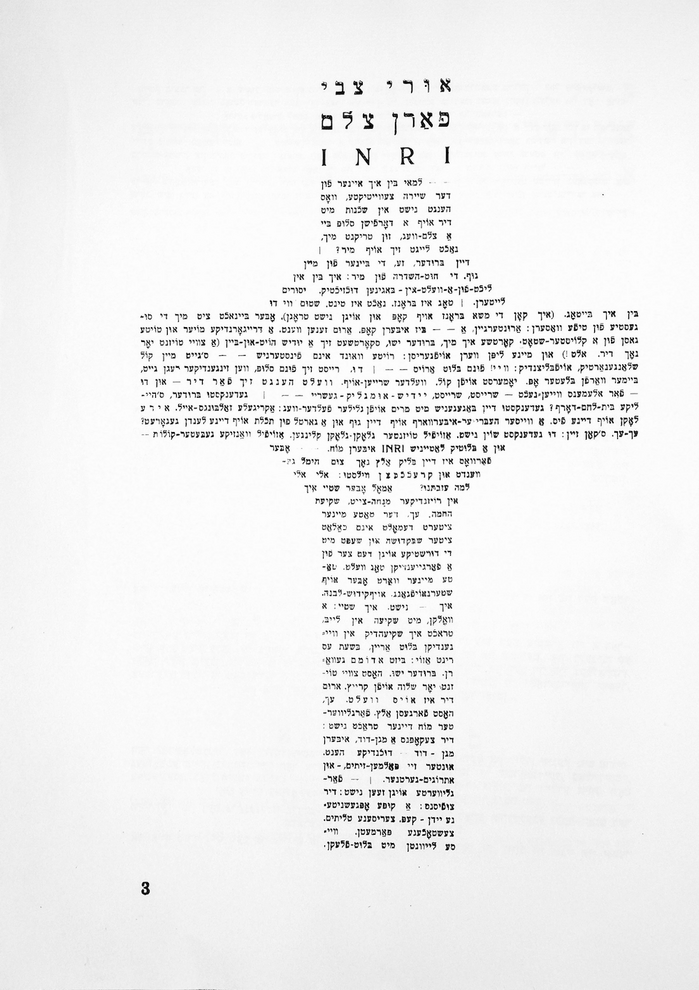“Uri Tsvi farn tseylem, INRI” by Uri-Zvi Greenberg

Photo: Tyler Kliem. Jewish National and University Library (JNUL). License: All Rights Reserved.


The concrete poem “Uri Tsvi farn tseylem, INRI” (“אורי צבֿי פֿאַרן צלם„; “Uri-Zvi Before the Cross”), written by Uri-Zvi Greenberg (1896–1981), was featured in the second issue of the short-lived Yiddish literary journal Albatros (1922–1923), which was dedicated to expressionist and avant-garde aesthetics. The journal published its first two issues in Warsaw, eventually publishing the final third in Berlin due to censorship from Polish authorities. The text, shaped like Jesus’ crucifix and labeled with the Latin “INRI” (“Iēsūs Nāzarēnus Rēx Iūdaeōrum;” “Jesus of Nazareth, King of the Jews”), was deemed anti-Christian due to its content, which situated Jesus as a selfish martyr and a traitor to the Jews.
Both the title in Yiddish and the poem’s text are set in Frank-Rühl (פרנק-ריהל), the first modern Hebrew typeface, designed by Rafael Frank (1867–1920) and originally issued between 1908 and 1910 by the type foundry C.F. Rühl in Leipzig. The Latin capitals used for “INRI” are unidentified.
This post was originally published at Fonts In Use